Media | Articles
Ranger Road Motors gives disabled veterans a community on track

For years, Jeff Langston struggled to connect with his father. The elder Langston was a disabled veteran, and Jeff witnessed, firsthand, the overall lack of support for veterans. Langston always wanted to do something to help but wasn’t sure how he could support his father and other heroes. In 2018, after his father’s passing, he was invited to a Ranger Road event.
Ranger Road is a nonprofit organization that provides veterans the necessary tools to be successful during the crucial transition from military to civilian life. The group provides a variety of experiences and programs that might not be readily available for veterans, including skydiving, sailing, and hunting.
As Jeff learned more about Ranger Road, he discovered the community that was missing for so many other veterans. He witnessed disabled vets participating in a skydiving event. The participants were so full of energy and excitement that he and his close friend Jay immediately came up with an idea: They would add motorsports to the umbrella of programs offered by Ranger Road. Ranger Road Motors was born.

The team decided to build a race car specifically for veterans to drive, aiming to compete in a 24 Hours of Lemons event.
They managed to complete their first event without receiving a black flag—quite the feat for rookies in a Lemons race. The group finished in the top third of the 148-car field, and top 20 in their class. In less than three months, the new group formed a race team, sourced a car, and entered their first race. Everyone that participated was hooked.
Marketplace
Buy and sell classics with confidence
On-track success aside, the bond formed between these vets in one weekend was inspiring. Jeff, Jay, and the whole team realized that they had created something special.
For the first race, the VW GTI that they used had traditional vehicle controls, meaning the drivers had to have at least one arm and one leg. But other veterans with more severe injuries wanted in on the action: “If you get hand controls, I’m in!”
The team set to work making the hot hatch more accessible for their next outing.

Each time Ranger Road Motors raced, more veterans showed up at the track with varying abilities. The team refined their car, and pit area, to better serve their drivers. They discovered that they needed help getting drivers in and out of the car, so they mounted transfer straps on the vehicle to assist. Then, they realized that some of their drivers only had a left arm while others only had a right, so they installed fire pulls and main kill switches on both sides of the driver’s seat. They also added steering-wheel-mounted radio controls that any driver could reach.
On occasion, they learned what they needed out of experience, like the time when a driver radioed, “I’ve got no brakes!” in the middle of a race. As Jeff was scrambling to tell them where to pull off, another vet hopped on the radio and calmly asked, “Have your checked where your legs are right now?”
Many tense moments passed with the car still at speed, barely staying on the pavement. They finally received another transmission: “Oh yeah, good call. I’m fine now. My other leg was just stuck under the brake.”
That was the day the team learned that some paralyzed people experience spasms in their non-functioning limbs causing them to move without their knowledge. Since then, additional straps were mounted to the interior to hold any non-functioning appendages down.
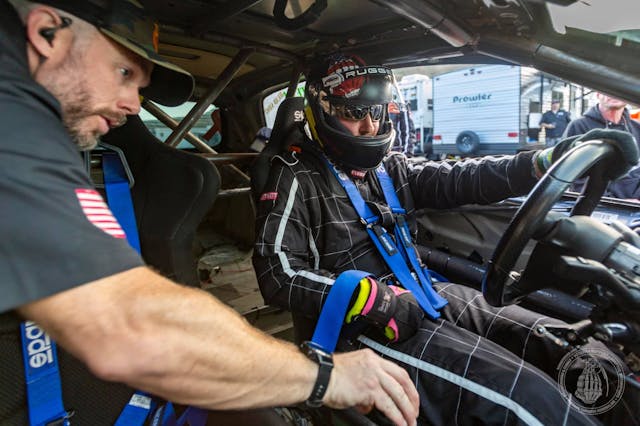
New team members are first asked if they are “stock.” And they aren’t talking about car modifications. Ranger Road Motors need to identify if you have all of your body parts and if they all work. This is a community where physical disabilities are being normalized.
Some team members need support elsewhere. For veterans with PTSD, strapping into a helmet was triggering, so the team created a 45-minute plan to help drivers get ready to race. The process involves donning their race suit in stages, adding air conditioning in the helmet, and, for some, playing country music to help keep them stay relaxed.
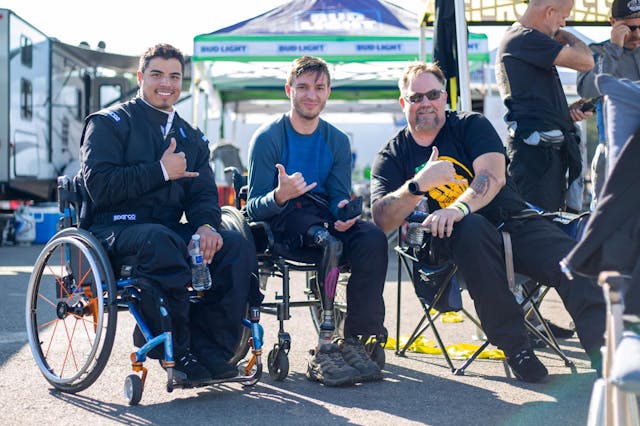
Jeff Langston believes that for veterans who experience anxiety, motorsports can be an amazing treatment. Before anyone gets behind the wheel, the team spends time teaching the vets about the safety aspects of the race car, down to who installed each part. This level of detail builds trust and comfort for the veterans. They often find that after successfully participating in a race weekend, the veterans that suffered with severe anxiety are often now able to get out of the house and go to the grocery store. Shopping suddenly becomes simple compared to the stress of racing.
Josh Stein, a veteran driver for the team, shared the impact the experience has on him and others: “You get veterans in cars, you get them out of their head, and on the track to clear their mind. It also lets them know they are not alone. The whole therapy aspect of racing is being able to leave the world behind. Once you’re in the car, you’re strapped up, you’ve got your helmet on, you’ve got your communication, and you go through your steps. You start to forget about what issues you thought you had.”
He adds: “This [team] is my other family. We are so tight that we call each other on weekends. It’s how we survive. We are one team, one family, one mission, to keep everyone going forward. Always forward.”

The team competes in at least five races annually, all with the 24 Hours of Lemons racing series. The team chose to race Lemons because of their mindset. Jeff explains: “In most racing, the competition looks at you and says, ‘I want to beat you at all costs.’ In a Lemons race, the competition says, ‘I want to race with you out there.’”
He also encourages others to join them at a Lemons race in the future. “If you have a few hundred bucks, you can race. They even have a site to help find a team that needs a driver, kind of like a dating site. You get on there and share what you can offer. Maybe you know how to wrench, or cook, or have an RV that a team could use. It’s a great way to get started.”

Now the Ranger Road Motors’ VW GTI has traditional foot controls, as well as hand controls. Another unique aspect of the race team is their safety protocol. Everyone receives safety training on how to help teammates get out of the car. The group meets with first responders and corner workers at each track to make sure everyone understands what makes the car and its drivers unique.
Most tracks don’t have wheelchair access to pit lane. “Our team is opening doors with tracks by helping them be better prepared for disabled drivers,” says Jeff. “Tracks have made bigger refueling areas to fit our team’s needs. One of our goals is to make motorsports better, and more open, for other teams like ours in the future. Hopefully, other teams like ours will start up and feel welcome at the track.”
While community and healing are the main goals, they are also there to race. After every session, drivers receive feedback from coaches using GoPro footage. The team also built a racing sim to help drivers learn each track.
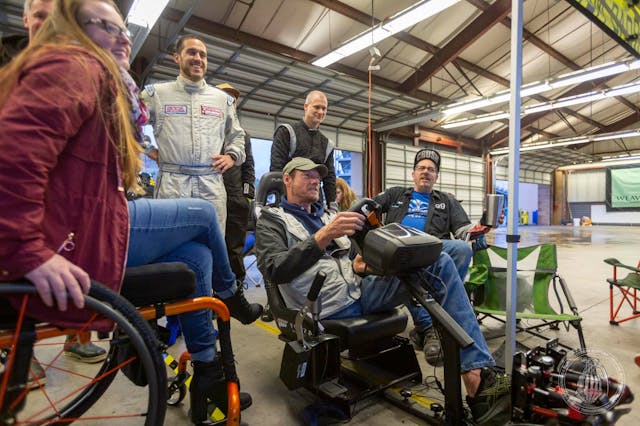
Jeff enjoys when other competitors tell them how well their team is trained, prepared, and predictable out on the track.
Recently, the team had to acquire a second car to support their expanding group of drivers. They sourced a 1988 VW Jetta with a manual transmission and will be used for able-bodied vets. Its car number #911, in reference to the date that many of these vets decided to join the military. The original VW GTI now wears #22, as a reminder of the number of veteran suicides per day.
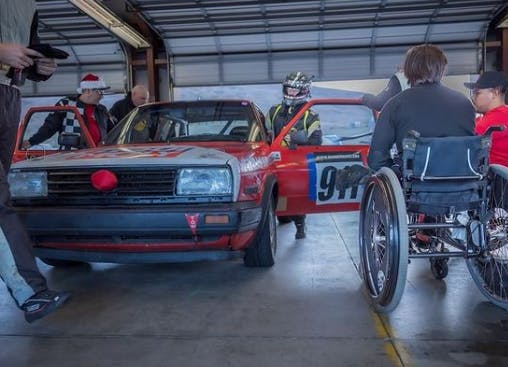
For many years, the members of this team lived in military environments with people that would literally do anything for one another. Then, they come back home and it’s different. This race team and its camaraderie can help make that transition less of a hurtle. Between the vets, their families, and volunteers, about 40-50 people show up at each race, which helps to combat the isolation many of these heroes face each day.
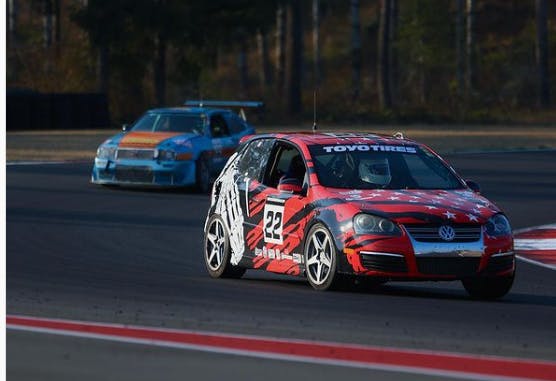
Jeff and Jay are incredibly proud of what this team has become. This group is a family now. Jeff was even the “flower girl” at a team member’s wedding and invited teammates to his house for Thanksgiving and Christmas. And Zoom allows them to stay close on weekends they’re not racing. Every Tuesday night, they gather for an hour-long meeting online to check in on each other.

Ranger Road Motors had a moment in the spotlight when a member of Jay Leno‘s team—who also happened be racing in a 24 of Lemons race—made contact with the VW on track. The Ranger Road crew making a humous spectacle of it by shaking their prosthetics at Leno and his team. Leno was so intrigued by their team that he invited them to be on an episode of Jay Leno’s Garage.

Veterans from Texas, Colorado, New Jersey, New York, California, and Washington are currently part of the team. Though, they are always open to more. (To join, sign up here.) Lately, they’ve had such a large group that driver’s stints had to be shortened so that everyone had a chance to race. The dream for Ranger Road Motors is to expand with additional cars in more locations. In addition to their San Francisco base, they are hoping to add a car located in the pacific northwest, southern California, and Texas. This expansion would allow them to attend more races and get more veterans involved.
More teams comes with with a cost, and if you are interested, they are always looking for donations to help fund the team. In the future, they hope to build a car and showcase it at SEMA to spotlight some of the products and sponsors that support this team of veterans.

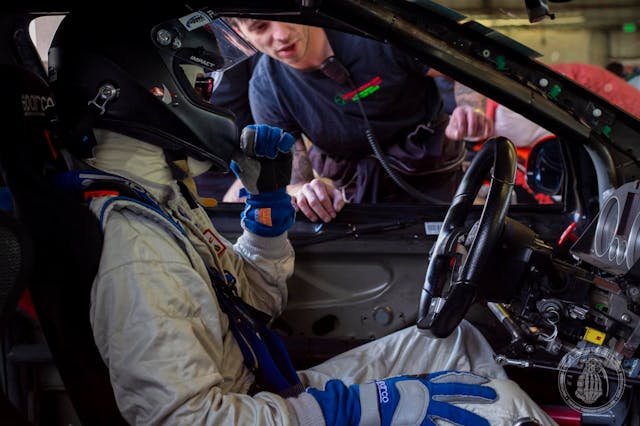
Ranger Road Motors is a family that supports each member on and off the track. In the military, there is always a goal to train towards. This race teams helps give vets a new goal.
Ranger Road founder and CEO, Mikhail Venikov transitioned from military to civilian life as a veteran of the Second Army Ranger Battalion. The non-profit is his answer to finding and restoring the importance of brotherhood, teamwork, and family for all brothers and sisters who have lived their lives in service to our country. Their mission is to take veterans under their wing and help them get back to their normal life and get them feeling like themselves again.
Check out their full roster of programs:
Rustic Healing Hunting Trips
Scuba Diving
Shadowarts MMA Gym
Project Moving Forward Exercise Clinics
Sailing
Cage Side Warriors Spectating MMA Fights
Gibborim Rifle Project
Docs Corner Mental Health Resources
Freedom Jump Skydiving
Check out the Hagerty Media homepage so you don’t miss a single story, or better yet, bookmark it.
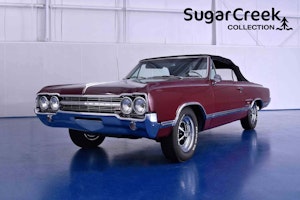

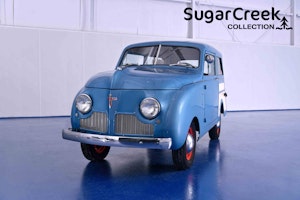
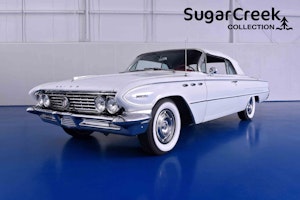


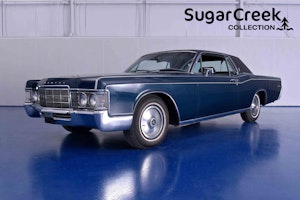
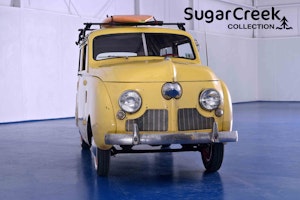

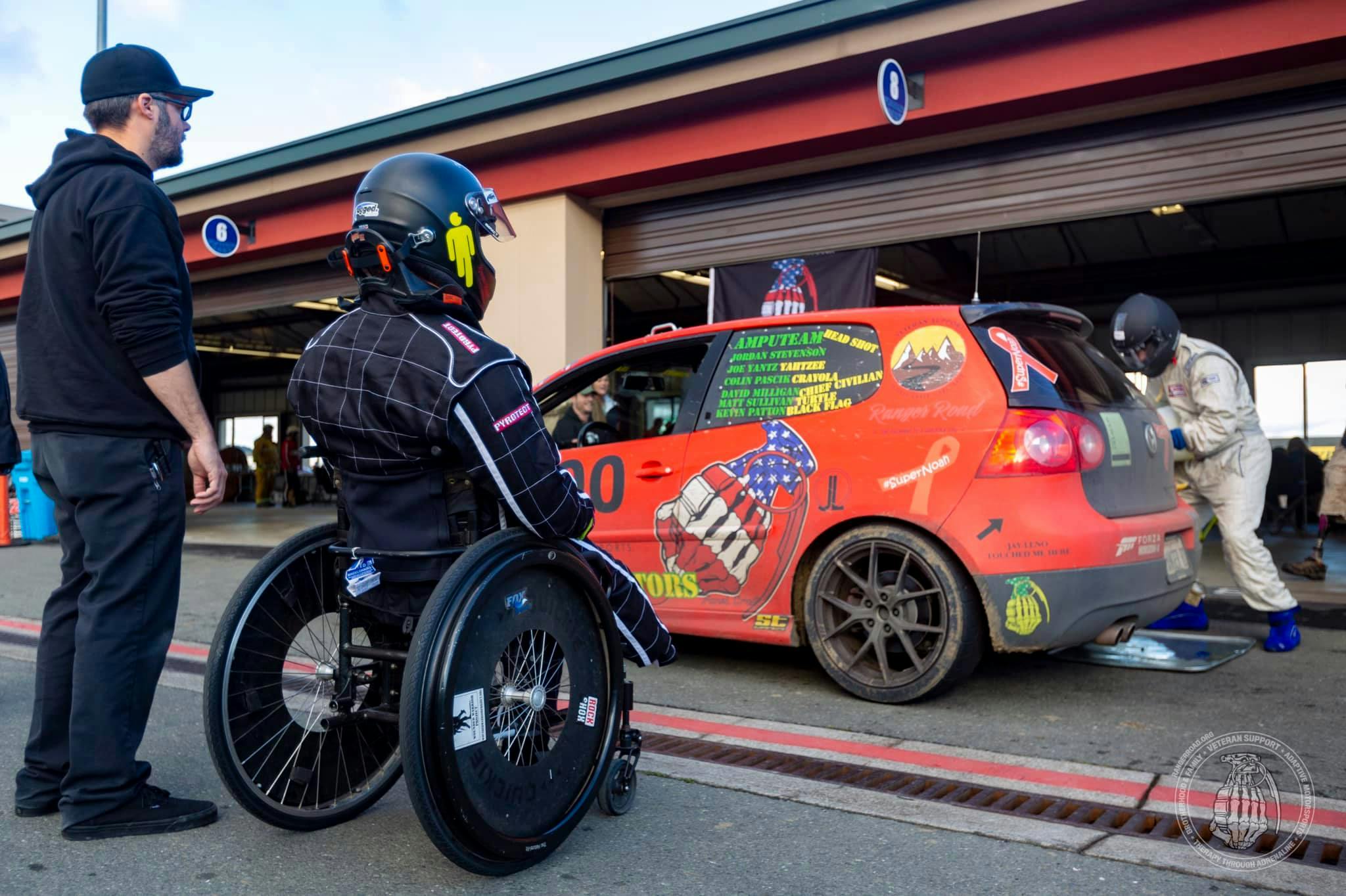









What a cool deal.
My father was a disabled vet (although his paraplegia was the result of an auto accident and service-connected). I learned to drive using hand controls, and actually had some difficulty learning how to use “normal” controls when I got old enough to take Driver’s Ed. I spent the first 39 years of my life helping my dad figure out how to “normalize” his life. Aside from Wheelchair Basketball, there were few programs in the ’50s – ’80s that were geared towards getting people with physical challenges into mainstream activities. So, I’m wholeheartedly cheered by stories about opportunities such as this one.
Gotta bore you with one humorous automotive anecdote about my dad: in the early ’80s, I dropped a small block Chevy 400 into a ’62 Dodge pick-up, with a TH400 tranny. Don’t remember the reason, but I borrowed my dad’s car for something, and left my pick-up at his house. While I was gone, he decided to take the truck for a spin. Jury-rigging some crude hand controls in it (give Dad a broomstick and some wire, and he could make Rube Goldberg look like a rookie), he made it down the block, but when he turned the corner, he misjudged his throttle pressure, and that “built” motor got away from him. Bottom line was that he took out about 15 feet of a neighbor’s fence – and luckily the owner was a pretty understanding guy. But I made sure to flip the hidden kill switch on that pick-up the next time I left it parked at his house! 😊
Kudos to anyone like the people in this story that are trying to help disabled vets integrate into some of the things that able people often take for granted.
sorry, I meant to type NOT service-connected!
Hey Dub6, We have a great time with this family we’ve built. Reach out, share more stories! 1/2 or more of our drivers injuries are “post-service”. Come to one (or more) of our events we always welcome volunteers
I hope they get some donations as a result of this article. Very inspiring.
It could be from you!!! 5$ or 5 million it all helps and is tax deductible. donorbox.org/ranger-road-motors
Very cool thing they are doing. I saw the thing with Jay sometime ago and thought it was cool.